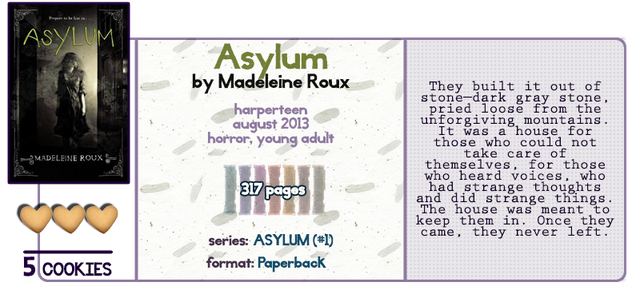 Titus decides to deploy his ultimate weapon …
Titus decides to deploy his ultimate weapon …
Titus Andronicus, Act III
Bear with me on this: I’m an English teacher, and I talk – no think – in similes and metaphors. “It’s what I do!”, as David Mitchell might say in BBC‘s Upstart Crow.
Last time round, I talked about the tit-for-tat nature of revenge. As I turned back to my Arden, I had a sudden image of the Andronicus family ranged against the Goths at a table-tennis table. (This is the sort of thing that makes my students assume I’ve gone bonkers)
But take a look at this! Even if you’re not a fan, I defy you not to feel increasingly tense as the rally continues: the stakes seem ever higher, and you wait to see who blinks first. The experience of reading or watching Titus is gruelling; to act in the play must be unbelievably demanding. The situation’s not unlike, to mix my metaphors, Trump and Kim Jong-Un firing the ping-pong ball of world peace back and forth at each other …
So. Whilst in Act I we had Tamora pleading for the life of her eldest son, Act III opens with the ball on the opposite side of the net: Titus is now forced to beg not for one, but two children, as the ‘rally of revenge’ continues:
‘Be pitiful to my condemned sons,
Whose souls is not corrupted as ’tis thought.
For two-and-twenty sons I never wept,
Because they died in honour’s lofty bed.’ (III.i.8-11)
My initial thought – maybe it was a hope – was that in begging for his sons Titus had reached some point of anagnorisis, that epiphany of realisation that he has messed up, massively. Then I looked again, and saw that key word, ‘honour’. Pesky abstract concept that it is, and everyone in the Roman plays seems obssessed by it. Look at that idiot Brutus in Julius Caesar:
‘Set honour in one eye, and death i’th’ other,
And I will look on both indifferently.
For let the gods so speed me as I love
The name of honour more than I fear death.’ (I.ii.86-89)
And look what happened to him: eaten alive by Satan in the ninth circle of Dante’s Inferno. For eternity, to boot! Titus ought to take a leaf out of Falstaff‘s book on the subject:
‘What is that word ‘honour’? Air. A trim reckoning. […] I’ll none of it. Honour is a mere scutcheon.’ (I Henry IV: V.i.134-40)
Having said that, I have great sympathy for Titus. Again, he begins to remind me of King Lear – a once powerful man reduced to insignificance and tottering on the edge of madness. Shakespeare gives us a heartbreaking image in his stage direction:
‘Andronicus lieth down, and the Judges pass by him.’ (SD: III.i.11-12)
and Titus continues to advocate the unhearing, unfeeling stones for mercy (the mercy, to be fair, he didn’t give Alarbus in Act I). Again, I feel for the man, and I want him to have that moment of anagnorisis when he warns Lucius:
‘Why, foolish Lucius, dost thou not perceive
That Rome is but a wilderness of tigers?’ (III.i.53-54)
But we’re still not quite there. He hasn’t perceived that he was one of the ‘tigers’ when Alarbus was sacrificed. It’s only unfair when it’s happening to him – still.
We may, just about, have forgotten Lavinia by this stage. Her reintroduction bears a little dwelling on:
‘MARCUS: This was thy daughter.
TITUS: Why, Marcus, so she is.
LUCIUS: (falling to his knees) Ay me, this object kills me.’ (III.i.63-65)
Look at how Marcus’ use of ‘this‘ and Lucius’ use of ‘object‘ dehumanises her – in her state, she’s no longer human to them. Also, Marcus speaks in the past tense, as if she is dead.
In Act II, I pointed out the deliberate cruelty of the mockery of Lavinia by Demetrius and Chiron. What I see now, as that section combines with this one, is Christopher Marlowe – a Frankie Boyle-style enfant terrible figure making jokes in the very worst taste that we still have to laugh at. I defy anyone who’s already read the play not to snigger a little when Titus exclaims:
‘Speak, Lavinia, what accursed hand […]’ (III.i.67)
And:
‘Give me a sword, I’ll chop off my hands too,
For they have fought for Rome, and all in vain’ (III.i.73-74)
There’s a serious point here, like in the best of Frankie Boyle’s jokes, and again it is about the returning soldier, the man who sacrifices everything, and how society treats him. Maybe I’ll consider that in a future post. But it’s also fun, devilish fun. Here’s Boyle (for those of you who need an example) on Trump’s recent Phoenix rally:
‘Trump delivered one of his random rightwing word collages in front of a crowd who if they were any whiter would have had carrots for noses.’
See what I mean?
And then we switch abruptly to pathos. We’re back to the table tennis analogy, back and forth now, my heart is being smashed by Team Laughter and Team Sorrow. This is surely as beautiful as Shakespeare gets in expressing confusion, grief, and helplessness:
‘For now I stand as one upon a rock,
Environed with a wilderness of sea,
Who marks the waxing tide grow wave by wave,
Expecting ever when some envious surge
Will in his brinish bowels swallow him.’ (III.i.110)
Read it out loud, to the punctuation, and you’ll hear the poetry, I swear it.
At this stage, moved, I wrote in my copy on first reading, ‘can things get any worse for Titus?‘ Of course they can. Back comes Aaron, and again, he’s not looking for like-for-like revenge – what he does is unpardonable: evil for its own sake:
‘O, how this villainy
Doth fat me with the very thoughts of it.
Let fools do good and fair men call for grace.
Aaron will have his soul black like his face.’ (III.i.203-206)
And he exits with the hand Titus has just gullibly (and yet nobly – Falstaff would never have done it) cut off in a bid to save his sons. I challenge you to find a more evil character in the canon, because at this stage, I can’t think of one …
The final straw for Titus is the return of his hand with the heads of his sons, and the report from the empathic messenger:
‘Thy grief their sports, thy resolution mocked,
That woe is me to think upon thy woes
More than remembrance of my father’s death.’ (III.i.239-241)
Tamora and her gang have had their turn, and the ping-pong ball of revenge is now sitting up nicely at Titus’ end of the court, waiting to be smashed back with enough force to win the point. He resolves to find ‘Revenge’s cave’ (III.i.271) – note the personification, the deification of the abstract noun.
And, because in the ‘rally of revenge’ you send back what you’ve just but with greater force, it’s going to hurt so much more to have Lucius raise an army from the Goths to eventually defeat the former Queen of that nation …
We’re fast approaching the point in the rally where someone’s going to have to blink.
References:
Arden Third Editions:
Titus Andronicus, ed. Jonathan Bate
Julius Caesar, ed. David Daniell
1 Henry IV, ed. Scott Kastan
Frankie Boyle in The Guardian: ‘Maybe Trump is a kind of cry for help from the Earth, a human flare‘, 27 August 2017
Share this:




